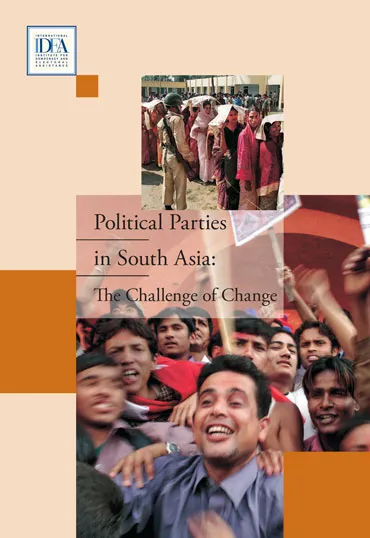Political Parties in South Asia: The Challenge of Change
With one-fifth of the global population, South Asia is the largest democratic region in the world today, even though military rule and monarchy still exist in certain countries.
Political parties have played an active role in decolonization, freedom struggles and social change in the region and have been responsible for marrying democracy with development and social justice. Yet research shows that 40 per cent of the population in South Asia does not trust political parties, while only 11 per cent of those surveyed express ‘great trust’.
This report provides a comparative view of the conditions, roles and functioning of political parties in five countries of the South Asian region: Bangladesh, India, Nepal, Sri Lanka and Pakistan. It builds on empirical information collected from 49 parties and addresses the challenges of politics as experienced by the key political actors themselves: the political parties. In addition, it includes practical recommendations for reforms in the party domain.
By providing comparative information, this International IDEA publication aims to stimulate debate on the challenges faced by political parties in South Asia. It is especially aimed at political parties, scholars, policy makers and democracy assistance organizations working for political reform.
Details
Contents
Foreword
Methodology
The context
Changing party systems
External regulation
Internal functioning
Women's participation
The way forward
Give us feedback
Do you have a question or feedback about this publication? Leave us your feedback, and we’ll get back to you
Send feedbackPolitical Parties in South Asia: The Challenge of Change

| Total views | 5248 |
|---|---|
| Downloads | 31 |
| Rating |
Give us feedback
Do you have a question or feedback about this publication? Leave us your feedback, and we’ll get back to you
Send feedback